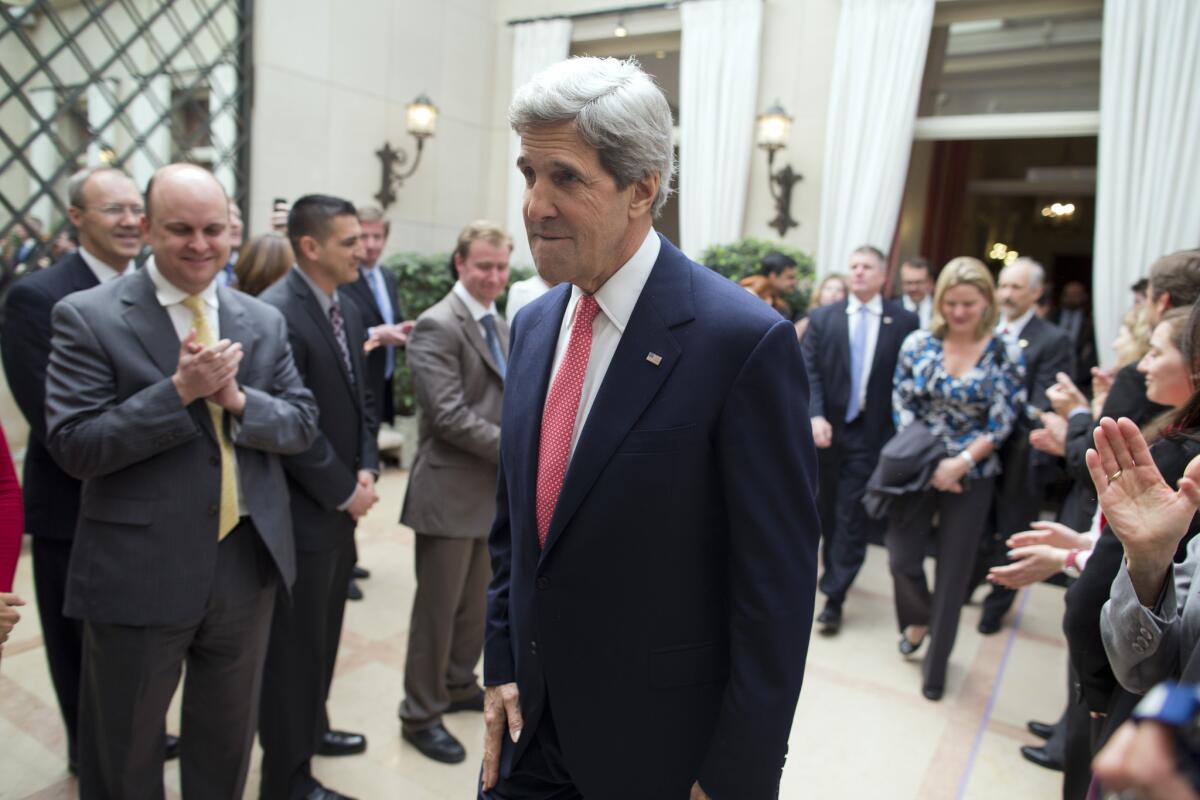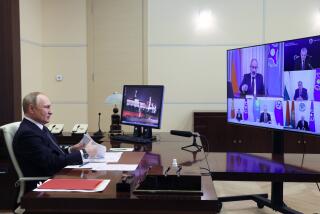Kerry to host Afghan, Pakistani leaders for talks

BRUSSELS -- Secretary of State John F. Kerry is to host a meeting of top Afghan and Pakistani leaders here this week in hopes of breathing new life into flagging Afghan peace efforts.
The meeting set for Wednesday is to bring together Afghan President Hamid Karzai and his defense minister, Bismullah Khan Mohammadi, with Pakistani army chief Gen. Ashfaq Kayani and Foreign Secretary Jalil Abbas Jilani.
A State Department official described the encounter as part of a series of three-way meetings that occur regularly at a lower level.
With most U.S. troops scheduled to leave Afghanistan by the end of next year, the Obama administration is eager to work out a peace accord between Karzai’s government, Taliban militants and the country’s neighbors. But the Taliban appear in no hurry to make a deal, and neighboring countries have their own goals in the talks.
The Afghan-Pakistani conversation has been strained by incidents at the countries’ borders and by other issues.
Karzai recently accused Pakistan of failing to live up to commitments it has made in previous talks. His spokesman, Aimal Faizi, said in Kabul that the president would attend this week’s meeting in an effort to resuscitate the peace process.
The Pakistani Foreign Ministry said in a statement that the country has “consistently endeavored to facilitate an Afghan-led and Afghan-owned peace process.”
In a Monday afternoon meeting with U.S. diplomatic staff here, Kerry said the leaders will talk about the peace effort “in the simplest, most cooperative, most cogent” way.
Kerry, in Brussels for a meeting of NATO foreign ministers, is also to meet Tuesday with Russian Foreign Minister Sergei Lavrov, part of an Obama administration campaign to win Russian support on the key issues of Syria and missile defense.
U.S. officials believe that withdrawal of Russian support could persuade Syrian President Bashar Assad to give up his bloody two-year fight against opponents of his regime.
Those officials also hope that a decision in March to redesign the United States’ European-based missile defense system will reduce Russia’s loud objections to the project and allow the two countries to begin negotiating a reduction to their nuclear arsenals.
Russia, however, has resisted two years of entreaties by the U.S. on Syria, and so far has given no sign that Washington’s shift on missile defense will remove its objections.
ALSO:
John Kerry urges Turkish leader to delay Gaza Strip visit
The Week Ahead: Baiting Iran, briefing Brussels, a call to Brunei
11 people abducted in Afghanistan after chopper’s forced landing
More to Read
Sign up for Essential California
The most important California stories and recommendations in your inbox every morning.
You may occasionally receive promotional content from the Los Angeles Times.











